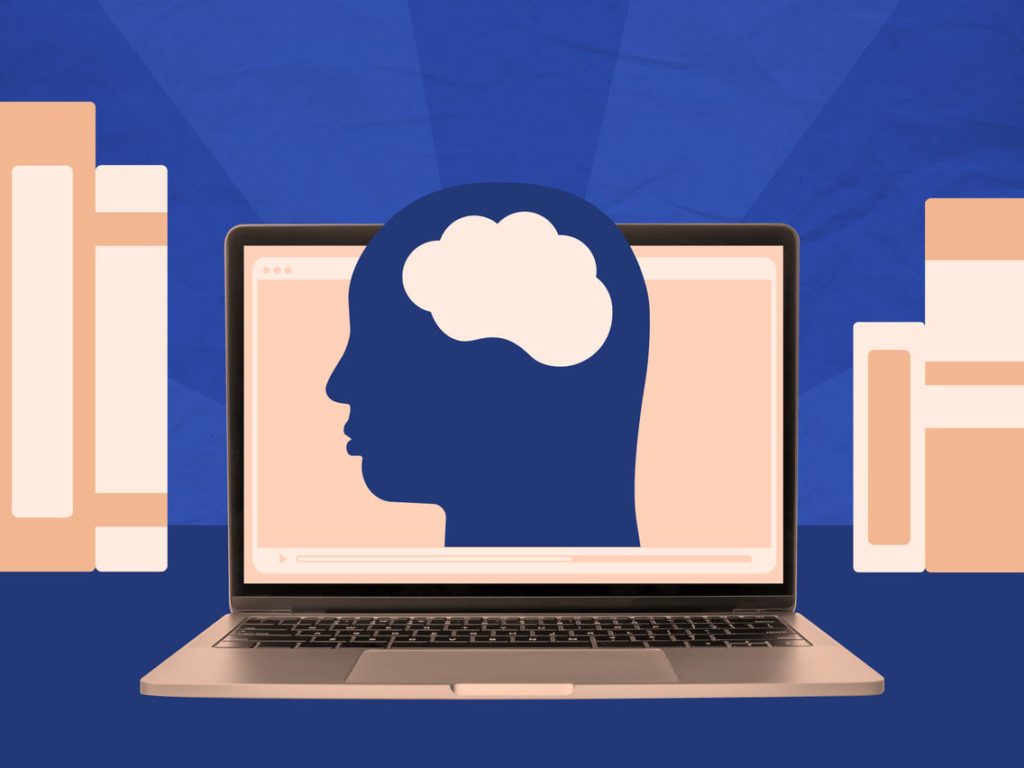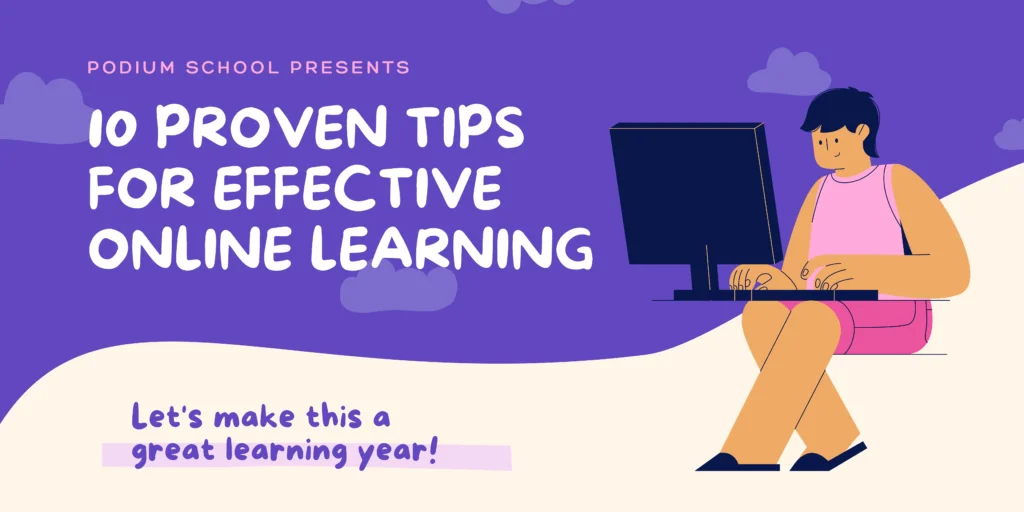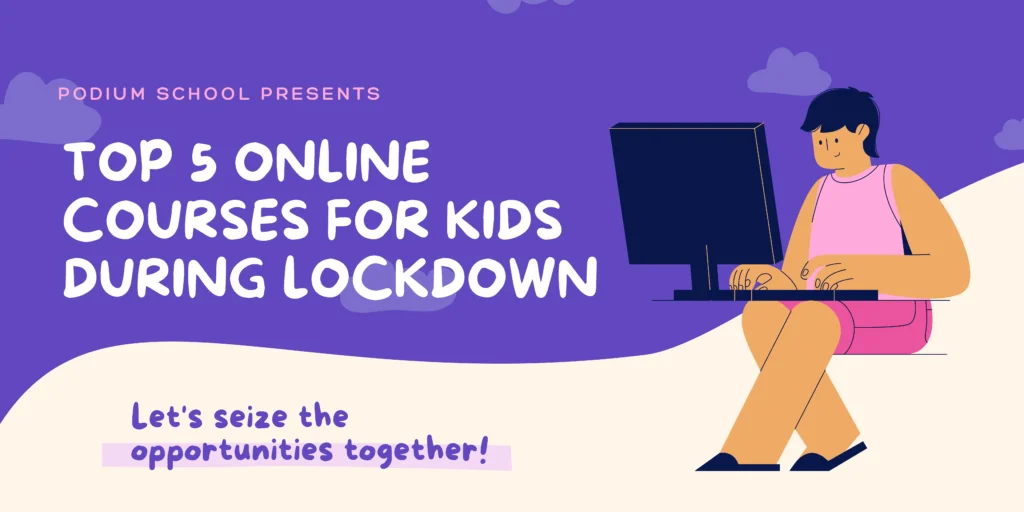Coronavirus has afflicted the different parts of the globe resulting in the loss of near and dear ones. Many universities are not allowing physical entry. This has forced everyone to stay indoors. It has eventually had an impact on people’s mental health. Read the following article to balance both mental health and online learning.

Tips to manage online learning and mental fitness
Practice a meditation technique
Meditation is the answer to many of your problems. Rest of the techniques will work magically, once meditation is mastered. Try inculcating meditation in your routine and watch how things start falling in place.
Become conscious of your surroundings
Be mindful of what’s happening around you. The flowing water in your bathroom, the chirping of the small bird from the branch that reaches your window of the room. Try searching solace around you. Identify what becomes your token of joy.
Eat well and work out regularly

We understand that this is easier said than done, but the fundamentals of healthy living have a substantial impact on our mental health too. Give time to yourself. Schedule your time. Be mindful of what you consume. You surely would want to eat fruits and green vegetables, once you google its multiple benefits. Why Exercise ? Simple answer to your question is to build immunity. Exercising regularly not only helps you build immunity but rather helps you feel productive and content. Let’s pledge to give our body daily what it needs – healthy food and a hearty exercise routine.
Give yourself a break after the online learning
Sleeping adequately has numerous advantages, ranging from lower stress to a healthier physique. Moreover, it is surely difficult to sleep 7-9 hours when stress up with work, school, and family. To get a good night’s sleep, use these suggestions.
Do you’ve got got a favorite enjoyable activity? Make time to indulge in your favorite pastime. Mental health experts believe that taking out time for ourselves is vital.
Interact with other people

With so much to do, it can be difficult to remember to make time for friends. But who would deny the fact, that a small chat with your friends can simply brush off all the tiredness and gloominess or the day long’s fatigue. So, go stay nearer to your close circle and give them a call.
Making objectives
Don’t stress if you don’t have time to do everything together. Making your objectives tough but reasonable – something you can achieve without jeopardizing the other points on this list – is the greatest approach to ensure you achieve them. Give yourself realistic goals and remember not to be too hard on yourself.
Please, get out of here as soon as possible
Take some of the items on this list outside if you’re able. Taking a walk in the woods or completing a yoga routine in the sun, according to Business Insider, can provide surprising health benefits.
Relax after online learning

While it’s critical to keep ourselves accountable, studies have shown that self-compassion is also a vital component of mental wellness. To make your online learning experience a little smoother, consider the following relaxing options: Pull out an e-book or stir up your Kindle and examine something aside from your textbooks. Meditation, yoga, and different respiratory strategies are all true options. Make a phone call or use FaceTime to connect with your closest friends and family members. Play some games to relax your mood.
Request assistance
There’s nothing incorrect with requesting help, whether or not it’s via phoning your educational advisor, chatting to a cherished one, or consulting a therapist. Whether you’re looking for a fast de-stressing video or long-term treatments for stress, anxiety, or depression, university resources can help.
Use Time Management Strategies for online learning
There’s no enough time and there’s too much to do? This is one of the most common sources of stress for students. If you’re feeling overworked and overwhelmed, make a to-do list for yourself, make a schedule for each online course you’re taking. Plan out when specific tasks are due when quizzes or examinations will take place, and when you’ll have time to study. Staying organized: This is something that can be applied to all aspects of your life! To ease out things, you can keep your textbooks, notebooks, or other materials you’ll be using in class, organized.
Obtain Enough Rest
Getting enough sleep is the first step in teaching yourself how to manage stress. A good night’s sleep is essential not only for online learning performance but also for stress management. For each younger humans and adult, doctors advise 7–nine hours of sleep. Determine the amount that is appropriate for you and attempt to stay to it.

You’ll spend numerous hours in front of your PC, typing essays, finishing classes, and speaking with classmates or instructors over the net in case you take online classes. Another purpose to preserve a constant timetable is to keep away from forgetting things. Your mental health may be harmed if you do not get enough sleep because your computer keeps you up. The two are inextricably linked. Prolonged sleep deprivation negatively impacts your health. Make certain you’re getting sufficient sleep at night time if you’re concerned about your intellectual health.
Make a self-check-in
When you are pursuing any type of education, whether online or off, you may experience stress. Sleep problems, a racing heart, sadness, poor attention, and much more. Check-in with yourself on a common foundation to peer how you’re feeling.
We hope that some of these pointers will assist you in better adjusting to your new online learning environment.
Share with your friends





